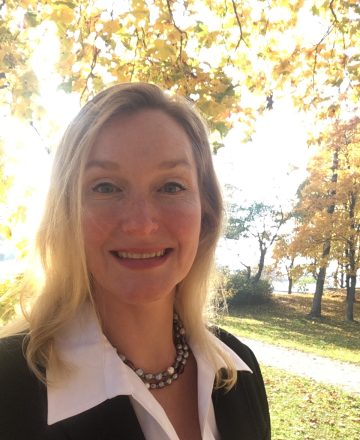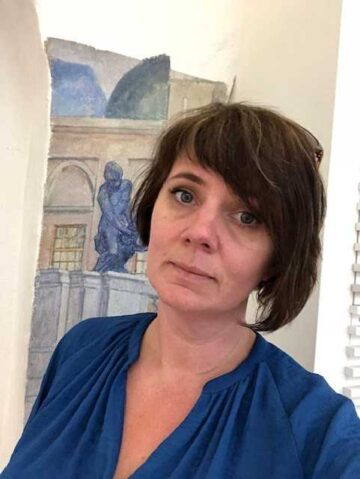Plenary Speakers
“Boundary Crossing, Religion, and Music”
Aspiration is a key feature of American popular music. The combination of traditional, sacred music with flashy, profane styles aspired to something new. The sounds and performance practices at the core of much of this music are rooted in African American and white religious traditions. Forms including blues, gospel, rock, honky-tonk, and soul demonstrate the permeability of sacred and secular soundworlds in which individuals and collectives cross social boundaries. Yet when music and musicians traverse, and transgress, musical borderlands that are closely guarded by religious and social authorities the response has often been swift and critical. This plenary addresses border crossings at the nexus of religion and music.
Randall J. Stephens, University of Oslo
American church leaders and laypeople went on the defensive when rock and rollers first drew from the music of churches in the 1950s. Early performers like Elvis Presley and Little Richard grew up in or regularly attended pentecostal churches. Such artists moved back and forth between secular and sacred styles and spaces. Vibrant churches, charismatic pastors, and flashy singing itinerants inspired Big Beat performers and stirred controversy. In a region that novelist Flannery O’Connor called “Christ-haunted,” the line between secular and sacred, holy and profane was repeatedly crossed.
Nina Öhman, University of Helsinki, Finnish American Studies Association
This plenary will also examine temporal crossings in the creation and performance of African American gospel vocal expression. Recognizing that masterful gospel singing has inspired popular singers and their audiences worldwide, this talk explores transcendentality that resonates in religious and commercial spheres of sound. Through focus on the power of singing voice this plenary amplifies women’s creative and spiritual leadership in envisioning transformative sonic experiences.
The topics we address through dialogue include: encountering difference, cultural appropriation, aspirations, and the aural realm. These are also topics relevant to contemporary conversations about the sonic, sacred, and change in society.
Dr. Randall J. Stephens
 Randall J. Stephens is Professor of American and British Studies at the University of Oslo. He is a historian of religion, conservatism, the South, environmentalism, and popular culture. He is the author of The Fire Spreads: Holiness and Pentecostalism in the American South (Harvard University Press, 2008); The Anointed: Evangelical Truth in a Secular Age, co-authored with physicist Karl Giberson (Belknap Press of Harvard University Press, 2011); and editor of Recent Themes in American Religious History (University of South Carolina Press, 2009). His latest book is The Devil’s Music: How Christians Inspired, Condemned, and Embraced Rock ’n’ Roll (Harvard University Press, 2018).
Randall J. Stephens is Professor of American and British Studies at the University of Oslo. He is a historian of religion, conservatism, the South, environmentalism, and popular culture. He is the author of The Fire Spreads: Holiness and Pentecostalism in the American South (Harvard University Press, 2008); The Anointed: Evangelical Truth in a Secular Age, co-authored with physicist Karl Giberson (Belknap Press of Harvard University Press, 2011); and editor of Recent Themes in American Religious History (University of South Carolina Press, 2009). His latest book is The Devil’s Music: How Christians Inspired, Condemned, and Embraced Rock ’n’ Roll (Harvard University Press, 2018).
Dr. Nina Öhman

Nina Öhman is the President of the board of the Finnish American Studies Association (FASA). She works as a Core Fellow at the Helsinki Collegium for Advanced Studies at the University of Helsinki. Öhman is a musicologist/ethnomusicologist studying women’s roles in music cultures, the singing voice, and American popular music. While situated broadly in musicology her work incorporates varied branches of knowledge including, inter alia, economic ethnomusicology, gender studies, postcolonial studies, religious studies, anthropology, and sociology. She is the editor-in-chief of Musiikin suunta -journal and serves as the vice-chair of the Finnish Society for Ethnomusicology (SES).
“Incompossible Futures, Disrupted Presents: The Aspirations of Speculative Fiction”
Speculative fiction is increasingly recognized as well suited to respond to the anxieties of the Anthropocene. This talk will explore two speculative elements from a new weird tradition that we argue are highly important at this time: the incompossible (that which contradicts what exists) as something that can be challenged and transformed, and the disruption of the future as the “bound-to-be” of the present through the introduction of what appears impossible.
N.K. Jemisin’s The World We Make (2022) and Ada Hoffmann’s The Outside (2019) present, as with much speculative fiction, scenarios that are impossible — sentient cities, unknowable dimensions beyond human comprehension. By refusing to explain or make plausible their speculations, Jemisin and Hoffmann follow in the weird fiction tradition, while at the same time rejecting and subverting the racist, misogynist, imperialist tendencies of that same tradition.
This plenary dialogue seeks to open up spaces for hope and thereby take literally the idea of “the world we make” as more-than-human relationality in process. The force of speculation comes from its power to make literal what otherwise exists as figurative.
Dr. Jenny Bonnevier

Jenny Bonnevier is Associate Professor of English at Örebro University. Bonnevier is interested in transspecies kinship and the construction of livable worlds in contemporary feminist, Black, and indigenous speculative fiction. She engages with the overlapping frameworks of feminist new materialisms, the critical posthumanities, and more-than-human studies. She has co-edited the anthology Kinship in The Fiction of NK Jemisin: Relations of Power and Resistance (Lexington Books 2023) and written numerous book chapters and articles on speculative fiction, including tv-series and film.
Dr. Steen Ledet Christiansen

Steen Ledet Christiansen is Professor of Culture, Media, and Aesthetics at Aalborg University, Denmark. Christiansen is interested in the aesthetic potentialities of fictions and is currently working on a project on the liberatory force of unworlding in speculative fiction. He is the author of The Morph-Image (Lexington Books 2024), Storytelling in Kabuki (University of Nebraska Press 2024), New Cinematic Weird (Lexington Books 2021), Drone Age Cinema (IB Tauris 2016), as well as numerous articles on popular visual culture.
